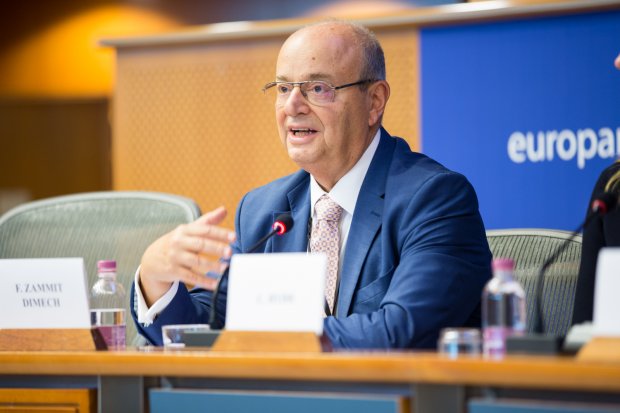Malta’s plunge in the World Press Freedom Index is not surprising when top government officials unleash hatred and intimidation towards journalists, MEP Francis Zammit Dimech said in a debate held by the European Parliament’s human rights committee in Brussels ahead of World Press Freedom Day on 3 May.
“Within less than a week the Prime Minister, two senior ministers and the head of communications of the Prime Minister have all attacked journalists in one way or another. Government officials appointed by the government have also continued to vilify Daphne Caruana Galizia,” Zammit Dimech said.
The MEP was joined by Julie Majerczak, from Reporters Without Borders (RSF) and Anne Marie Hammer from the Global Forum for Media Development, who suggested the establishment of an advisory body to oversee the investigations into journalist killings.
Hammer said this could take the shape of a commission with specific legal powers, made up of experts with forensic skills and a strong political mandate that can help and advise security forces and help them do their job.
“Such an advisory body would also help to overcome any lack of political will amongst local authorities where the active undermining of the police often scuttles such investigations. We believe that having someone looking over the shoulder of the investigators, would increase the probability of action,” she said.
Endorsing Hammer’s proposal, Zammit Dimech called on the European Commission to provide all the tools and protection necessary to assist investigative journalists in their work.
Zammit Dimech said that the World Press Freedom Index results show that despite all of the Maltese government boasts of having pushed a reform in media law to strengthen press freedom – while still not accepting the opposition’s amendment to protect journalists against SLAPP – its actions contradict all the hype and propaganda.
In her intervention, Hammer said “When governments create a negative environment for free and independent media, they are basically allowing for a lynch-mob mentality. Extremists and even regular members of the public, perceive it as legitimate to attack journalists. In a democracy you must tolerate all voices. Sadly, silencing journalists is not a new phenomenon.”
On her part, Majerczak, said that Malta was over the past year one of the problem areas with respect to press freedom in particular following the assassination of Daphne Caruana Galizia.
Turning to the Daphne Project – a collaboration involving 45 journalists from 18 news organisations from 15 countries who came together to continue and complete Caruana Galizia’s investigations, Hammer said “This will show the killers that the murder of a journalist will neither benefit them nor stop the story.”
She added that if law enforcement authorities, government officials and legislators do not do enough to protect journalists or seek to kill their stories, “then a whole host of journalists stand ready to protect their own, by keeping their stories alive and by making it more costly to kill or silence a journalist.”












